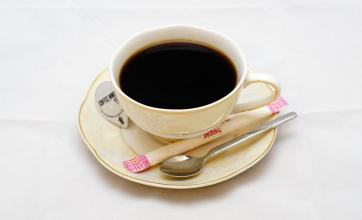Yunnan Tieka small Coffee Flavor description, Grinding degree, Taste characteristics, introduction to Fine Coffee
Dehong: it has the laudatory name of "hometown of Chinese coffee". As of 2011, a total of 120900 mu of coffee has been developed and planted in the state, accounting for 30% of the total coffee planting area in the country. In the next 3 years, the planting area of coffee in Dehong Prefecture will reach 200000 mu. The coffee planting in Dehong Prefecture is above 1000 meters above sea level, of which 30, 000 mu are planted in the mountains above 1600 meters above sea level. in addition, the coffee grown in Dehong Prefecture mainly uses organic fertilizers and organic pesticides, resulting in high quality coffee. it is one of the rare high-quality coffee producing areas in the world.
Baoshan: the cultivation of coffee in Baoshan began in the mid-1950s, and the first coffee seedling was introduced by the late patriotic overseas Chinese Mr. Liang Jinshan in Southeast Asia. The local famous Lujiangba small grain coffee is of excellent quality. It was rated as first class in London, England as early as the late 1950s. In recent years, with the expansion of international trade, Lujiangba's small-grain coffee is more famous. Merchants in Europe, the United States, Egypt, Hong Kong and Macao, especially in Britain, the United States, Egypt, Hong Kong and Macao all regard it as the best coffee, and the products are in short supply. In December 2010, after being examined and approved by the General Administration of quality Supervision, Inspection and Quarantine of China, it was decided to implement the protection of national geographical indication products for "Baoshan small Coffee".
Lincang: because of its unique geographical location and climatic conditions, Lincang has become the focus of many coffee enterprises, and has successively established 200 mu and 100 mu of high-quality coffee breeding bases in Mengding Town and Lincang Happiness Farm in Gengma Autonomous County of the city. coffee is planted in Gengma, Zhenkang, Yun County, Cangyuan, Yongde and other places.
Pu'er: tea village Pu'er has cultivated coffee for 150 years. At the end of 1990s, Pu'er City began to cultivate coffee as a dominant backbone industry to adjust the industrial structure and increase farmers' income. There are 54 townships (towns) growing coffee in 9 counties and 1 district of Pu'er City.
Coffee cultivation in China is concentrated in Yunnan and Hainan provinces. Yunnan has a large output, with an annual output of about 26000 tons in recent years, accounting for 90 per cent of the national output. It is said that Yunnan coffee came from the French 70 or 80 years ago. The main variety is Arabica Arabica, that is, the so-called small seed coffee, commonly known as Yunnan small grain coffee. Yunnan's high-quality geographical and climatic conditions provide good conditions for coffee growth. The planting areas are Lincang, Baoshan, Simao, Xishuangbanna, Dehong and other prefectures. The natural conditions of Yunnan are very similar to those of Colombia, that is, low latitude, high altitude and large temperature difference between day and night, and the small grain coffee produced is mellow by cup quality analysis. its quality and taste is similar to that of Colombian coffee in Pu'er, Xishuangbanna, Wenshan, Baoshan, Dehong, Lincang and other places in the south and west of Yunnan. As of January 1, 2012, according to the comprehensive survey of Yunnan Province, the planting area of coffee in Yunnan has exceeded 800000 mu, and the output of coffee beans in this period is expected to exceed 55000 tons. For the future, local governments in Yunnan have also drawn a blueprint: Dehong is planning to expand the coffee planting area from the current 100000 mu to 200000 mu in the next few years; Lincang plans to expand the existing 20, 000-mu coffee forest by 10 times to 200000 mu in the 12th five-year Plan; and Pu'er also plans to expand the 220000 mu coffee forest to 600000 mu. Other coffee growing areas such as Baoshan and Xishuangbanna are also planning to expand the planting scale.

Important Notice :
前街咖啡 FrontStreet Coffee has moved to new addredd:
FrontStreet Coffee Address: 315,Donghua East Road,GuangZhou
Tel:020 38364473
- Prev

Rich aroma of Guatemala Antigua Flower God Coffee Grinding Flavor Coffee
Guatemalan coffee has a strong aroma, even if you don't drink it, just smelling it is already a pleasure. Antigua coffee has a rich and velvety mellow, rich and lively aroma, and fine sour taste. When the attractive fragrance lingers on the tip of your tongue, there is an indescribable mystery. You may feel dull at the first sip, but as the coffee slows down
- Next

Introduction to the taste characteristics of Panamanian Kasha Coffee Flavor description, Grinding degree treatment methods
The current government of Panama was formed on July 1, 2009. the main members are: vice President Juan Carlos Varela, Minister of the Presidential Office Jimmy Papadimitriu, Foreign Minister Fernando Nunes Favre, Minister of the Interior Jorge Ricardo Favre, Minister of Public Security Jos é Raul Mulino, Minister of economy and Finance Frank George de Lima, Minister of Commerce and Industry Ricadogiha
Related
- Detailed explanation of Jadeite planting Land in Panamanian Jadeite Manor introduction to the grading system of Jadeite competitive bidding, Red bid, Green bid and Rose Summer
- Story of Coffee planting in Brenka region of Costa Rica Stonehenge Manor anaerobic heavy honey treatment of flavor mouth
- What's on the barrel of Blue Mountain Coffee beans?
- Can American coffee also pull flowers? How to use hot American style to pull out a good-looking pattern?
- Can you make a cold extract with coffee beans? What is the right proportion for cold-extracted coffee formula?
- Indonesian PWN Gold Mandrine Coffee Origin Features Flavor How to Chong? Mandolin coffee is American.
- A brief introduction to the flavor characteristics of Brazilian yellow bourbon coffee beans
- What is the effect of different water quality on the flavor of cold-extracted coffee? What kind of water is best for brewing coffee?
- Why do you think of Rose Summer whenever you mention Panamanian coffee?
- Introduction to the characteristics of authentic blue mountain coffee bean producing areas? What is the CIB Coffee Authority in Jamaica?

